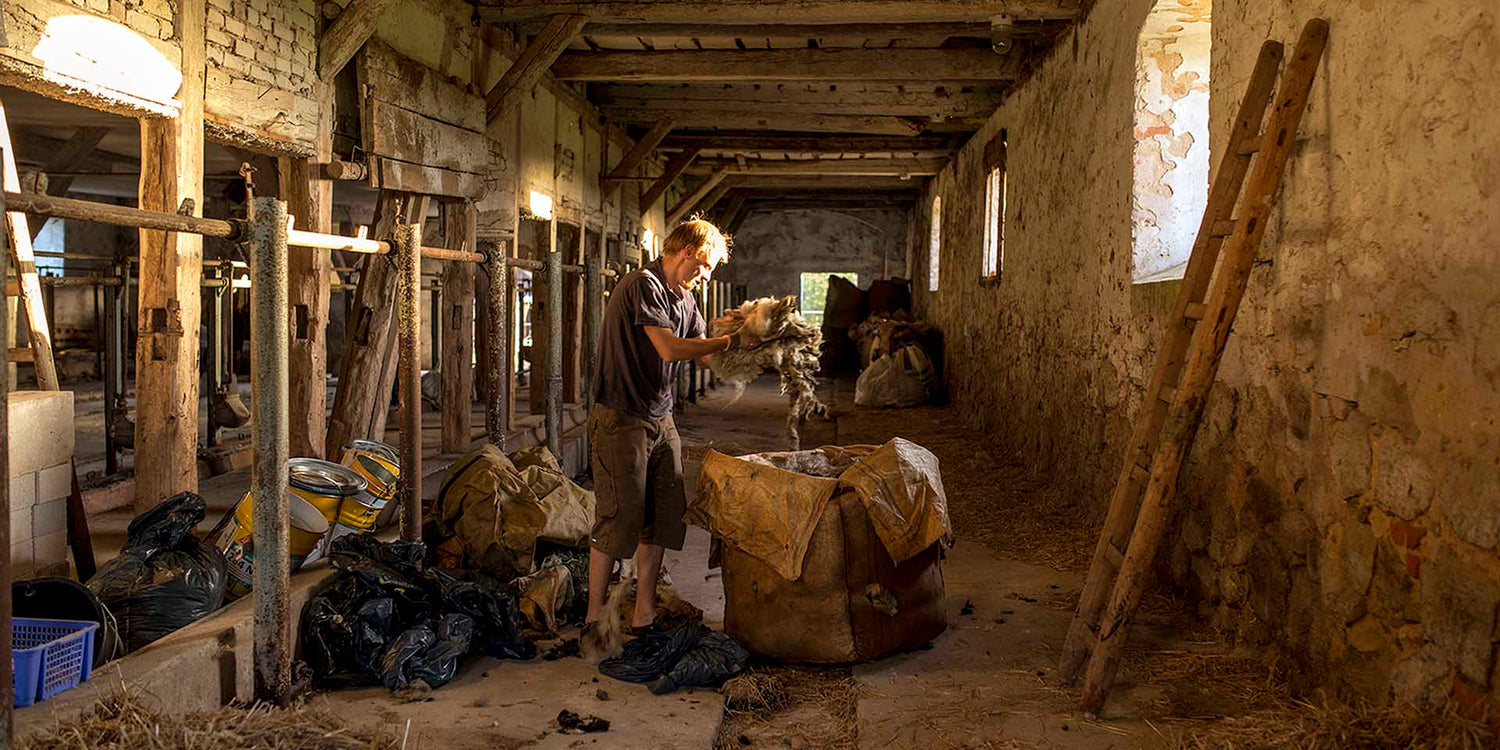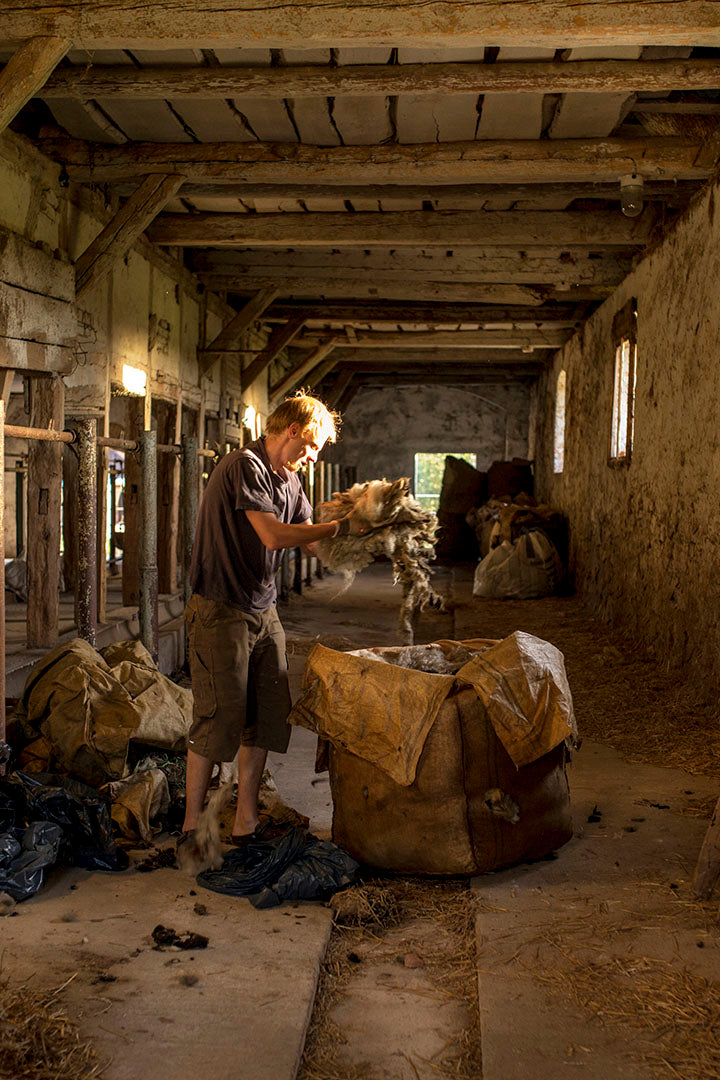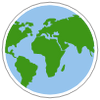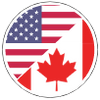Wool by Nordwolle
They do exist, these happy long-term partnerships. One such example is the collaboration with our partner company Nordwolle Rügen. After all, Nordwolle Rügen has been making sure that our winter Wildling Shoes models are both exceptionally warm and exceptionally sustainable for years.
First, as a prime example of regenerative enterprise, Nordwolle’s collaboration with small workshops means the company’s production can be traced all the way from obtaining the gray Pomeranian sheep’s wool to production of the yarn at a small family spinning mill in Portugal. A prime example of regenerative entrepreneurship that we’d like to shine a light on.
A clever idea that preserves biodiversity.
Since the wool of the Pomeranian sheep is relatively coarse, its suitability for traditional textile production is limited. This meant that the breed eventually ceased to be regarded as a source of raw materials.
In spite of this, Marco Scheel founded Nordwolle Rügen and discovered a practical way to use the wool, making wool production radically more sustainable since 2013. The company produces exclusively to order – which is the only way to guarantee that overproduction, and ultimately waste production, does not occur. The virgin wool that is used comes from endangered sheep breeds, and the fodder comes from grazing land, not from South American monoculture.
As a result, Nordwolle is making an indispensable contribution to species preservation and biodiversity. Finally, to bring things full circle, our partner company combines ancient raw materials with state-of-the-art manufacturing processes in the production process.
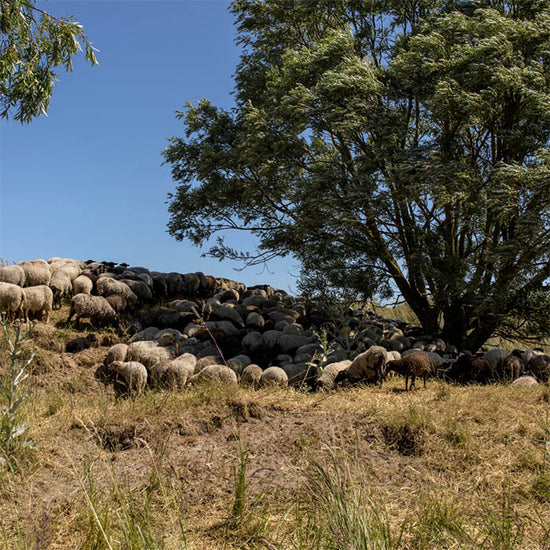
Wool from German sheep.
Wool from German sheep.
The endangered Pommeranian Coarsewool sheep are being used for landscape conservation in the district of Vorpommern-Rügen. They are the source of most of the wool.
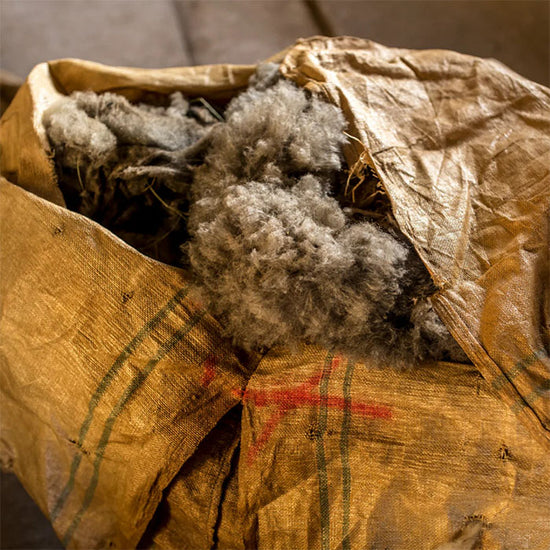
Wool scouring in Portugal.
Wool scouring in Portugal.
Since the last wool scouring operation in Germany went out of business in 2009, the company has had to look abroad. In this case, in Portugal.
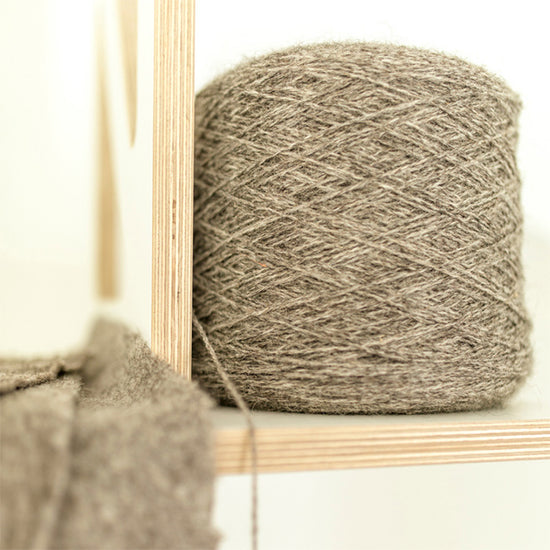
Spinning mill in Portugal.
Spinning mill in Portugal.
The newly cleaned wool is combed, or rather carded, in a wool spinning mill in Portugal. After that, the wool is spun into yarn.
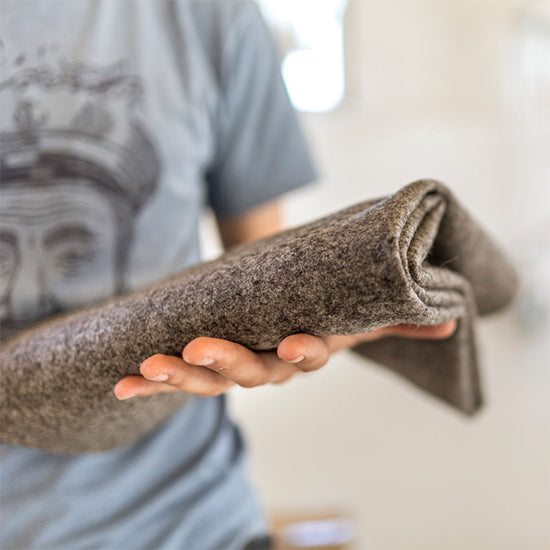
Weaving mill in Portugal.
Weaving mill in Portugal.
The spun wool is then woven in a small family-run weaving mill and further processed as required.
